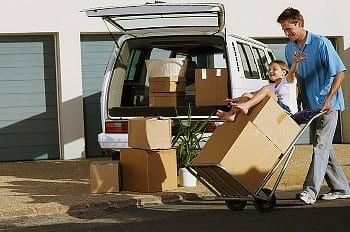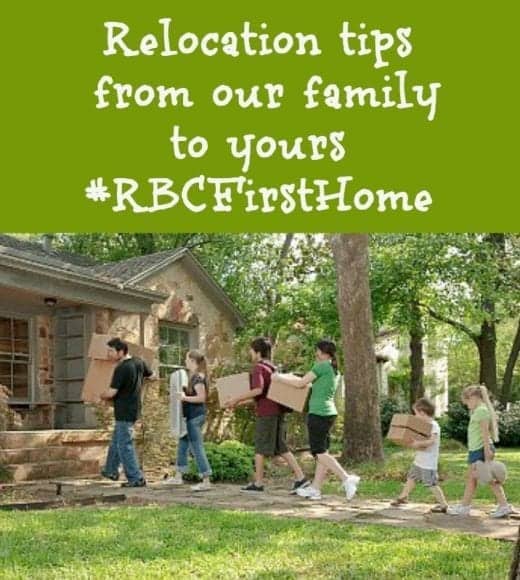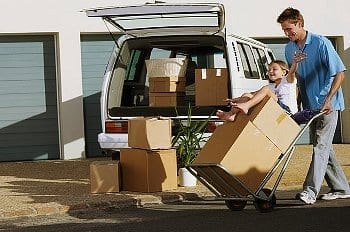Whether you’re moving for work or moving for love. Moving to help family or moving to your dream lifestyle. Or maybe you are moving because you sat & watched the sunrise at English Bay & decided that you wanted to uproot your family and entire way of life & move to Vancouver where you knew nobody but where you felt your soul belonged (or maybe that was just us!) relocating adds another layer of stress to the moving process.
When you are moving within your neighbourhood or local area, it is usually possible for the children to stay at the same school & for the whole family to maintain their social activities & commitments and this minimises the stress on everyone. If you are moving further afield and cannot keep your social circles and supports then planning can make the world of difference to how everyone feels when you are settling into your new home.
These are some of the lessons we learned when we relocated our family. Some were easy lessons to learn because we did things right and some were lessons learned the hard way because we did the wrong things. So to save you a few headaches & sleepless nights here are our families top tips for an easier relocation.
You can never start planning too early: As soon as the possibility of relocating is raised, begin looking into your destination and use these tips to help everyone settle successfully.
- Include the whole family in your planning: If your children are tiny, it is easier for them to cope with a move but if you have older kids, especially teens, relocating can be very traumatic for them – and consequently for you. While they might never be happy about the move, by including them in the planning and showing you care about their feelings you can minimise the upset.
- Check with your employer: If your move is for work, ask your employer if they have any relocation packages or supports. Even unofficial supports like arranging for your family to meet the families of co-workers can be enormously helpful.
- Ask your clubs etc.: To ensure you rebuild your social circle as soon as possible ask your gym, your kids coach, the officer at cadets if they can connect you to people in your new location.
- List what’s important to you: Do you have to be within walking distance of the school? Do you want small independent stores in quirky neighbourhoods or easy access to your favourite big chains? Maybe you need to fall within a particular catchment area for medical facilities. By making a list of these important points, you can narrow down your choices.
- Search the internet for info: If you have a particular neighbourhood you want, or have to, relocate to, spend some time online finding out all you can.
- ‘Walk around’ with Google maps: You cannot guarantee it’s 100% up to date, but you can get a good idea of whats in your new community and where to find things by taking a virtual stroll. This is a great idea for helping smaller children adjust to the idea of moving to a new place.
- Contact organisations ahead of time: As soon as you identify potential clubs, religious groups, classes, etc. contact them directly and find out opening times, costs, joining procedures, etc.
- Start to build friendships on social media: Join local groups on Facebook or Twitter, follow Instagram feeds and get to know local people. If you start this as soon as you know you might be moving you can have established the beginnings of new friendships before you leave.
- Make two scrapbooks: A great tip to help your little ones adjust is to make a scrapbook about your existing home & friends and list ways to keep in touch. Then build a new scrapbook with all the new things they can discover in your new location. Make it an exciting adventure!
- Register ahead & transfer records & services: Register at your new schools, dentists, doctors, etc. as soon as you have chosen them and ensure records are sent.
Save money where you can: Relocating is expensive, and there are several things you can do to reduce the financial impact.
- It’s clear out time! : Every item you take to your new home costs you money to move. More packaging, more time for the movers, bigger moving trucks or more in truck rental & fuel – it mounts up quickly.
- Sell, Sell, Sell: If you are planning you will have plenty of time to sell all of those items you are not taking with you. Word of mouth, Craigslist, eBay, local buy & sell groups on Facebook – here are plenty of places you can sell your items and the money raised can go towards the cost of the move or into an RRSP, TFSA or RESP.
- Evaluate the costs: Are you likely to buy new furniture in your new home? Would it be cheaper to sell what you have and buy new when you get there? If you have furniture and appliances you are likely to replace soon, don’t take them with you!
- Get several quotes: Ask lots of moving companies for written quotes and have them clearly lay out what the price covers & what it does not. This is especially important when looking at the insurance coverage for your items. What happens if something goes missing? Do you have to list expensive items separately to have the insurance cover them? Are you to be charged by the hour or for the job as a whole? Nail down every tiny detail because the cheapest quote could cost you more in the end.
- Collect supplies: You don’t have to but tonnes of supplies for moving. Craigslist & other community sites always have ads where people are giving their used or excess packing supplies for free. Collect boxes at the store & if you are lucky you can pick up segregated boxes at the liquor store. They are perfect for packing glasses & other delicate items.
- Pack yourself: If you can, pack yourself instead of using the moving companies service. Not only will you save money but you can start packing as soon as you like. Whenever we have moved, we’ve started packing as soon as possible to minimise the stress. Oh, and make sure you label the boxes clearly with their destination room on them.
- Check out hotel / B&B deals: If it’s going to be a multi-day road trip to your new home spend some time online looking at hotels, motels & B&B’s. You only need a bed for the night, so it’s easier to choose a cheaper option than the type of place you would vacation in.
- Plan your food: For the first day of travel, pack a cooler full of sandwiches, snacks & drinks. It’ll be far cheaper than buying them at service stations.
Smooth the move – You don’t want to overwhelm yourself on your first few days, and a few little things can make all the difference to your stress levels:
- Put together an information folder: In it, you should have; your travel itinerary, contact details for your realtor, bank details & contacts; A copy of the moving company contract, contact, hotel reservations, important telephone numbers, directions. Have a hard copy with you because if it’s in the cloud, you’ll need it in a dead spot and if it’s on your device the battery will die just when you need ‘that’ number. Also, leave a copy with a friend or relative – just in case!
- Pack an essentials box: This should be the last box to leave your old home & the first box in your new home. What’s essential to you may be slightly different, but ours had ; tea & coffee & coffee whitener, a kettle & cups, a camping stove ( because the utilities might not be on yet at your new house) first aid kit, prescription medications & some pain pills, cereal bars, trail mix, nuts & fruit leather, toiletries & towels, 6 plates & sets of cutlery, batteries, flashlights & pens & paper.
- Have several busy boxes: In the weeks leading up to your relocation pack some small tubs or boxes for the kids. These can be full of craft supplies, books, a new game or toy, old toys rediscovered – anything that will excite them & keep them occupied while you do some basic things.
- Plan a celebration: Find somewhere that delivers food before you leave & call for a take out for you all to enjoy on your first night. If you don’t like take out, put together a box with the ingredients for you first nights dinner & do as much as you can ahead of time. Have party hats, blowers, and balloons for the kids, play some music and be silly. No matter how tired & grumpy you might all feel, if you can have fun & laugh as a family on your first night it sets the tone for many nights to come.
- Take your time: Although you may want to get everyone settled down in new clubs, schools, etc. as soon as possible try and take your time to explore your new surroundings as a family. Discovering new places together is so much fun, and it’s great to ‘reconnect’ as a family before plunging feet first into your new lives.
If you’d like to know more about any aspect of moving and want to chat with the experts, join me (@Redheadepatti ) & RBC for a Twitter chat on Tuesday, September 22nd @ 8:30 pm ET. You can submit your home buying questions using the hashtag #RBCFirstHome, and RBC has invited a lawyer, a realtor, a designer, home builders & a mortgage expert, so you will get the best advice possible. Plus all chat participants have a chance to win 1 of 5 $100 gift cards!
RBC First Home September Chat
What would your number one tip be for someone who is relocating? Share your tips in the comments section – I’d love to hear them.












